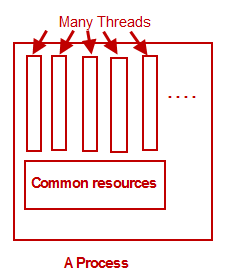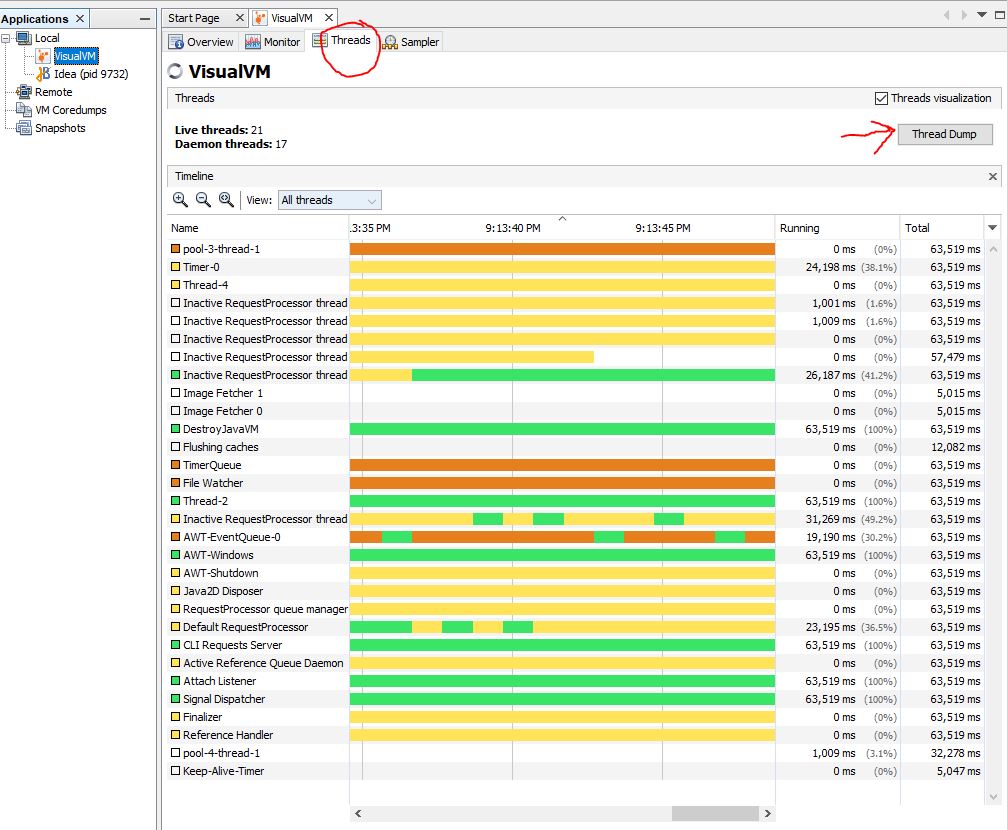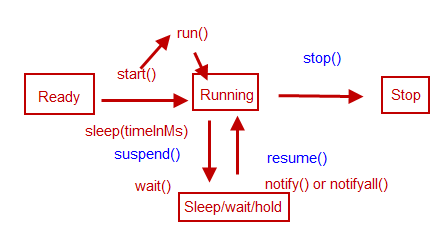In this article we are going to learn about Java Thread & Synchronization, basic introduction.
The theory part which is necessary for applying threading & synchronization. I will try to cover minimum information needed for understanding.
What is a Thread ?
A thread is a mini/light weight processing unit used by Run time Environment(JVM) to process which are isolated among each other.
Why it is lightweight, because, a thread can’t be independent but it is part of a process. So, technically, a thread is a single processing unit for a whole task/process.
To have clear idea, lets introduce some related terms.
- Multi tasking : When CPU preforms multiple process from single user.
- Multi processing : When a CPU performs multiple processes from multiple user
- Multi Threading : When multiple threads performs under a single process to a CPU.
So, by architecture, a thread will have
- Single process ID, name (or Identifier from Operating system) which are commonly shared.
- Single resource unit shared among all threads under a process. The resource can be memory, CPU time.

To know memory management details , you can read JVM architecture.
Note : As you know, from CPU world , there is shared CPU core technology called Hyper Threading/Hyper Transport which is core sharing technology that enables two processes running under same CPU core. Please dont confuse with this.
Hyper threading makes two logical processing unit for a single core which is actually recognized by OS as two processing unit. Where as, multiple threads (2 or more) is recognized as a single process to OS.
How thread works?
A thread is a implementation of runnable interface with run() method.
So, when a thread is created, it actually initiate an execution unit in JVM which actually runs the statement declared in run().
Usually, when we create a thread, we need to call start() to start the thread and start() actually calls run() safely.
Thread can wait, join, stop for other threads.
A group of thread can work like as,
- Preemptive multithreading : In here, CPU time shared process where each thread get time to run in CPU(queued or randomly chosen or highest priority get CPU time first). This is fully controlled by JVM.
- Cooperative multithreading : in here, Highest priority always get CPU time first. Unless , we explicitly make unselfish, it behaves like as selfish multithreading.
yield()is used with same priority to make unselfish.
Note : In any java profiler, we can actually see the running thread. For visual VM, see the Threads tab. A thread dump contains currently running thread information.

A Thread Life cycle :
A thread generally have 4 State in its life cycle.
- Ready
- Running
- Hold/Sleep
- Stop/Death of a thread

How thread states changed :
- From ready to running, it is done by
start()method calls, which actually runsrun()method. - From running to hold, it is done by
wait()orsleep(ms). And, eventually back to running by either time out ornotify()/notifyall()(forwait()calls only).
Note : Before jdk1.2, suspend() and resume() was used , but it is deprecated due to thread safety.
- From running to stop or death , calling
stop()which is deprecated also . It is handled by JVM itself.
Types of thread :
User Thread :
The thread which are use for user tasks and managed by users, they are user thread. Stopping of a thread is done by users.
Demon thread :
The thread which are managed by JVM it self and act like as service. (example, GC). It used to be low in priority due to it’s nature. Stopping of a thread is done by JVM.
We can change thread type before creation, but we can’t change type when started.
Properties of a thread :
- priority: (int, 1-10), representing priority of a particular thread to JVM. Default value 5 as normal. If it is created under a thread group, it gets the value from group. And, if the group default max value changed, it changed to max.
- Name(char[]) : representing name ,
- ID (long): Id of a thread.
- threadStatus(int): shows thread stated or not
- group (ThreadGroup) : Represents a set threads with common purposes, easy to manage all together.
All of these are readonly so, only getters are available
Thanks.. :)